Maserati realises its brand is unlikely to be an obvious fit for a company car policy but that doesn’t deter corporate sales ambitions. Matt de Prez reports
Why not get the car you always promised yourself? That is the question Maserati is posing as it reaches an even split between corporate and retail sales.
The Italian manufacturer has been through a significant change in the past decade. Its best-selling model is a diesel SUV (Levante) – a far cry from the historic racers and supercars for which the brand was once famed.
While Maserati has never been, and probably will never be, a core-fleet brand, it is looking to cash-in on its exclusivity and offer salvation to those who don’t wish to drive a car with the same badge as everyone else.
Leading the corporate sales charge is newly appointed national corporate sales manager Howard Dalziel. His five-point plan has helped the brand boost fleet sales by 10% and he expects to maintain a 50-50 split against retail by focusing on key areas.
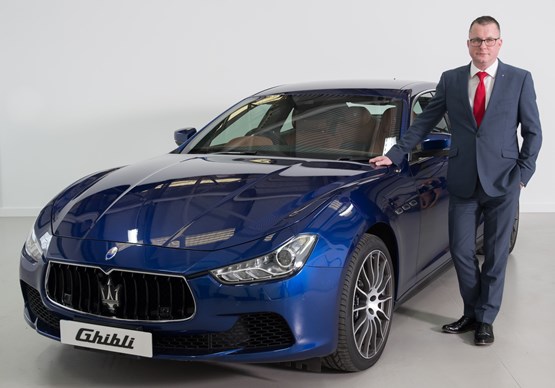
First and foremost on his agenda is the contract hire market.
“We’ve started engagement with the top 15 leasing companies. There is more than one opportunity for us: not least to supply a new car in the first place, but also to engage with the maintenance and repair, then getting the car back into our network and make a used car sale,” says Dalziel.
“We are recognising the right opportunities as far as choice lists which is why the leasing company relationships are so important. They are the gatekeepers for larger companies, to get us on their lists.”
At the same time, he is chasing deals with vehicle funding brokers. There are currently around 300 brokers registered with the British Vehicle Rental and Leasing Association (BVRLA) and Maserati supported its Leasing Broker Forum in October.
Dalziel says: “We can get in front of people who can see the opportunity for Maserati within their customer base and can see that going back to one of their customers with a different solution – rather than the stereotypical German or Japanese brands – would have value and would enable them to close a sale.”
The third area of focus is corporate entities. Dalziel specifies two types of business that he wants to target: limited liability partnerships, where there is no company car tax to pay, and larger businesses that have an employee base which “lends itself to the prospect of Maserati ownership”.
“Our opportunities lie generally within SME businesses on personal contract hire rather than conventional fleet policies,” says Dalziel.
He adds: “It was quite clear to me that we could spend a lot of time going down various avenues that would ultimately lead nowhere.
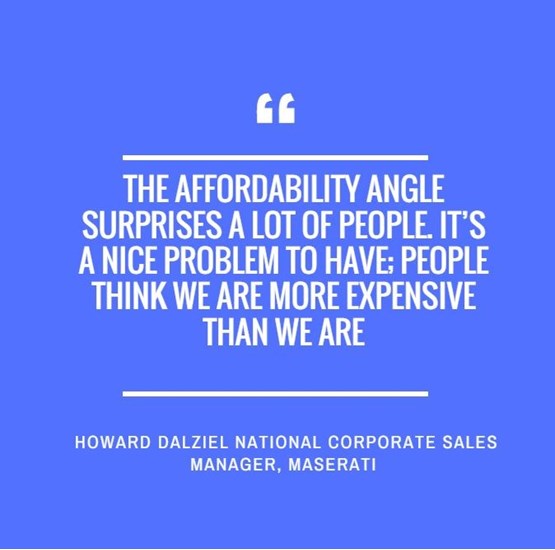
“Maserati is not an obvious fit for a company car policy. As soon as you talk about CO2 limits or typical BIK (benefit-in-kind) tax then Maserati is a not a fit for the conventional fleet audience.”
No matter who the brand chooses to target, residual values will always be crucial to keep its vehicle’s hire rates competitive.
That is why the fourth part of Dalziel’s plan involves better engagement with residual value setters, such as Cap HPI, KeeResources and Glass’s.
“It is something we haven’t focused our efforts on over the past few years. They make sense of our vehicle data and get it out into the industry.
"For me that is key to position our vehicles on leasing company websites. If the data providers don’t know the prices of the vehicles, we only have ourselves to blame if that data isn’t available in to the industry.”
At the end of 2017, Dalziel arranged a trip to Maserati’s factory in Modena, giving him the opportunity to demonstrate the latest range of cars and their capabilities to representatives from all the major value setters.
All corporate sales are handled, ultimately, by Maserati’s dealer partners, as the brand doesn’t supply direct. There are 19 dealers in the UK, although the company is planning to expand its network. The target is to have a dealership within 50 miles of any point in the UK.
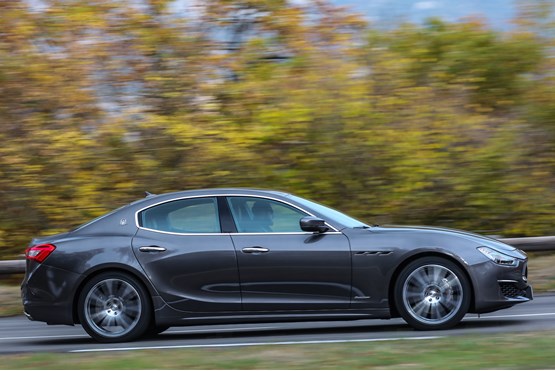
“It is really important for us to develop the right sort of relationships with the people who drive our vehicles, no matter the funding method,” Dalziel says
“We need to make sure Maserati ownership isn’t a one-off experience.”
A team of four look after the entire corporate sales operation.
Laura Heathcote-Smith takes care of the Southern region, while Louise Kelly is responsible for the North. Alexandra Cooper, based in the Midlands, helps to coordinate the team and manage customer contact, while Dalziel spends his time liaising with leasing companies and looking for new business opportunities.
Dalziel says: “It’s a question of uniting the dealers with those opportunities. We have to identify the right audience and invite them to the showrooms.
"If we can get those people into the showroom, we can talk about the affordability of the brand and that has worked extremely well for us.
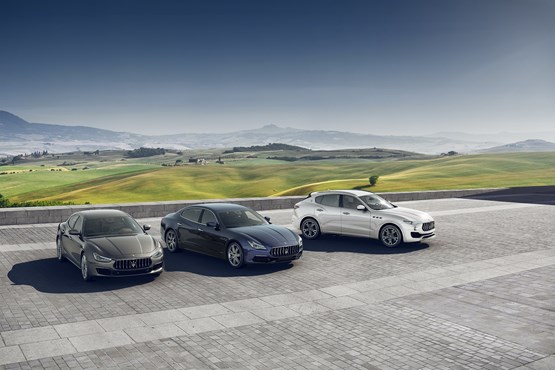
“The affordability angle surprises a lot of people. It’s a nice problem to have; people think we are more expensive than we are.
“When you talk through the figures, they realise that owning a Maserati can be a realistic proposition.”
Last year, Maserati registered 1,701 cars in the UK and 52% of those were to the corporate sector.
Part of the shift has come from the introduction of diesel engines, making the cars more suitable for higher mileage business drivers. The launch of the Levante SUV was another highlight that provided a significant boost in sales.
Dalziel says: “Diesel has been a significant part of our corporate sales. Ghibli, Levante and Quattroporte diesel are the most affordable to buy and run but we aren’t beholden to those products to be successful.
“While we have seen all the noise around diesel in the media, more people are going for petrol. Levante S has a new V6 petrol engine and that has taken off extremely well.

“With all the hysteria around diesel and emissions and the suggestion there will be no combustion engine vehicles by 2040, we are asking ‘why not get the car you always promised yourself now’?”
Compared to 2016, Maserati sales were up by 18% and the growth is expected to continue this year.
A raft of updates for the model range were announced at the Frankfurt Motor Show in 2017, including a suite of new advanced driver assistance systems (ADAS) for the Ghibli, Quattroporte and Levante.
By switching to electric power steering, the brand now offers lane-keep assist and, when combined with active cruise control, the vehicles can provide level 2 autonomy. Blind spot assist is also available.
“In terms of autonomy we are where we want to be at the moment. We still believe that a Maserati is a car to drive and we don’t want to detract from that,” Dalziel says.
Further developments are expected to be announced in May when the company outlines its next five-year model strategy, but FCA boss Sergio Marchionne has said that hybrid models are expected by the end of 2019, with the first electric Maserati coming a year later.




















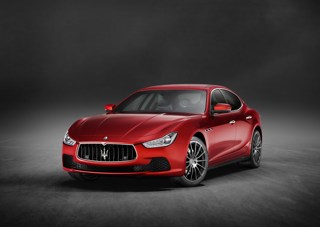
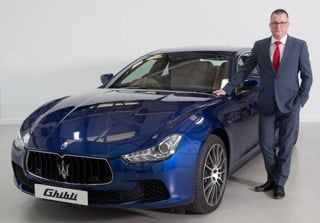
Mr.Bean - 05/04/2018 08:47
The problem is that once people experienced the product vs the Germans, they will see that the quality on any Maserati is below even when compared against some French product. The finish is in some cases is laughable and the tech appears to come from older Chrysler product! After all, if Alfa Romeo can improve so can Maserati, it will take a long time.